Reduce Your Health Care Costs With These Expert Tips for Seniors

Even before the coronavirus pandemic, many older Americans worried about the cost of health care. Spending on health care in the United States, which totaled about $3.8 trillion in 2019, is projected to reach $6.2 trillion by 2028, according to the Centers for Medicare and Medicaid Services, in large part because of a growing number of people 65 and older. Health care costs more for seniors, on average, than any other age group.
While the cost of health care keeps rising, there are some cost-saving strategies that can reduce the bite out of your budget. These include making smart choices when it comes to choosing a health plan, seeing a doctor, getting medical tests, having a surgery or procedure, and filling prescriptions.
Related: How Unhealthy Was Your State When the Coronavirus Hit?
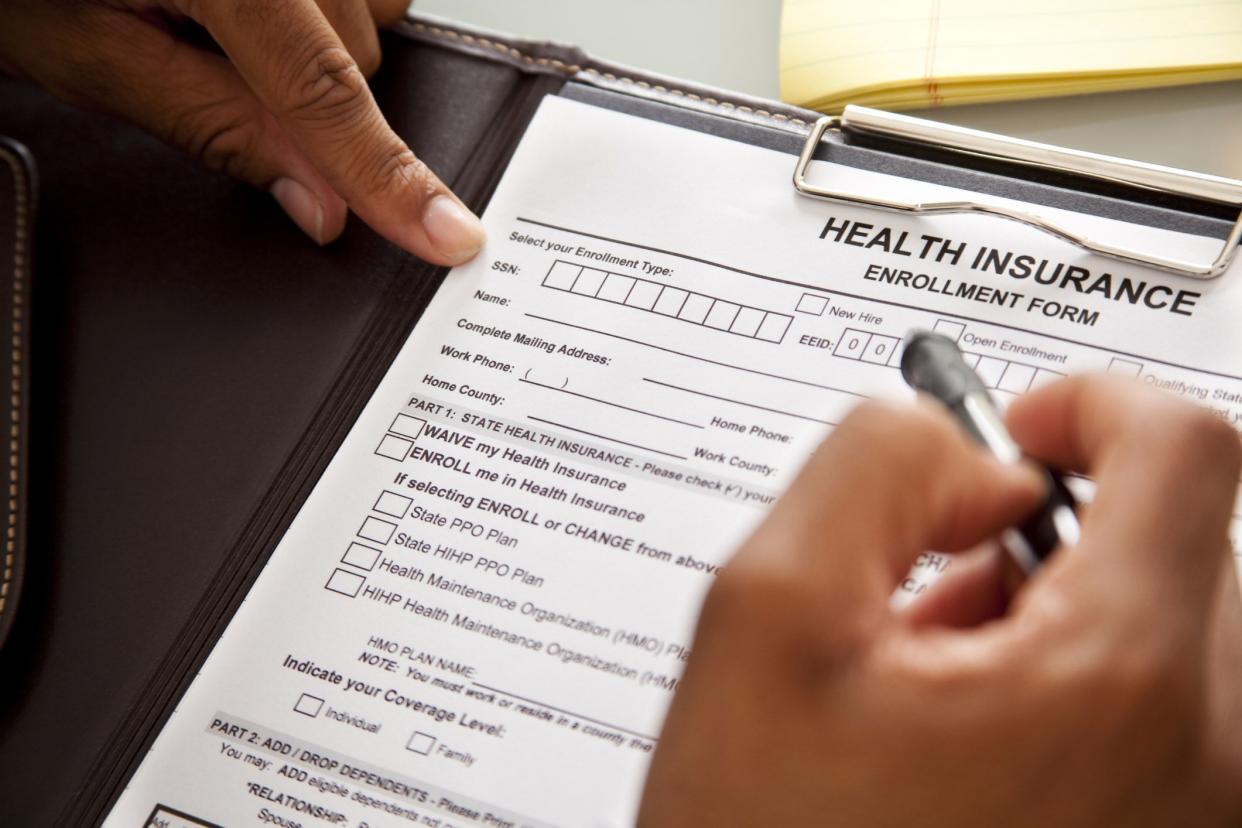
Whether you're paying for it directly or you're signed up through a plan from your employer, health insurance is a huge expense and one that is complicated to boot. So consumers need to scrutinize all their options before choosing a plan and keep their eyes open afterward. The following are some simple ways to save on your coverage.
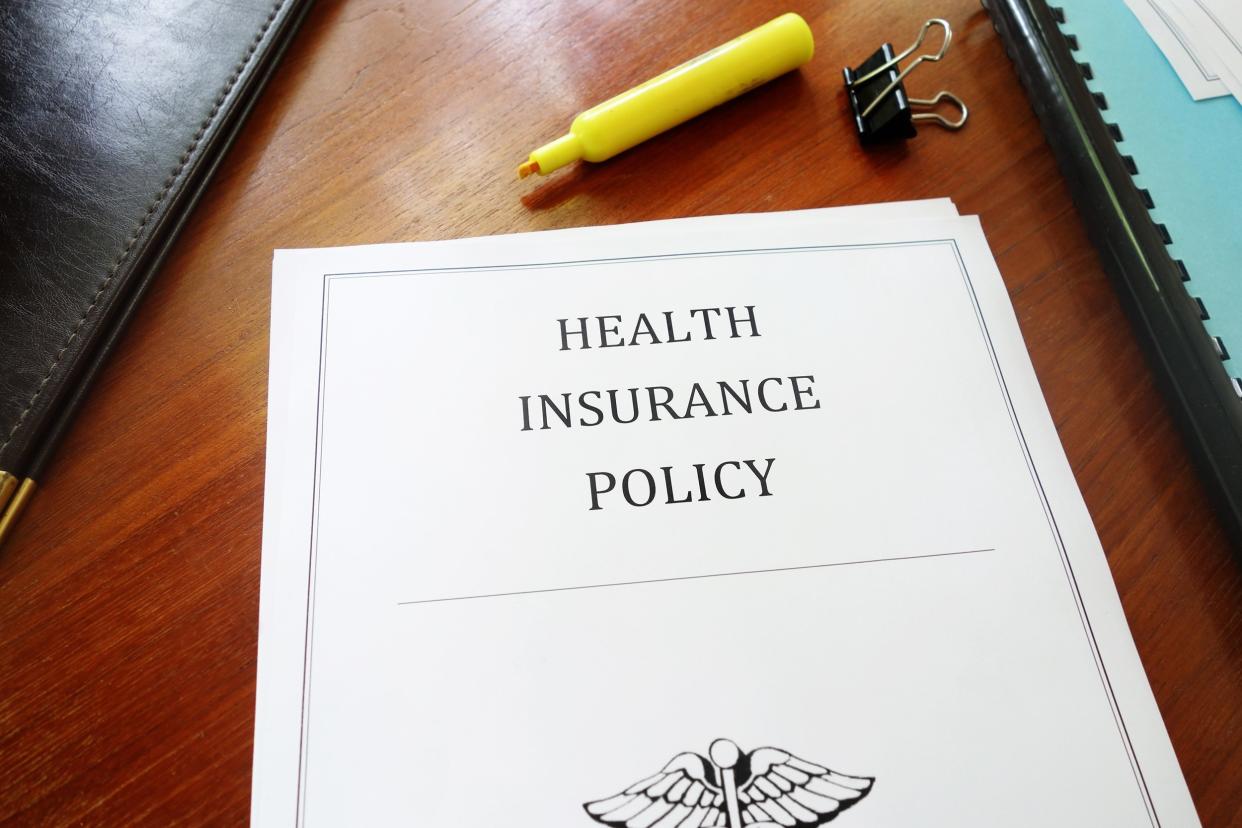
Choosing an insurance plan demands a lot of attention to important details. Give yourself plenty of time to study your options carefully, as a good choice can save you a bundle over the course of a year. Don't leave it to the last minute and make a hasty and costly decision.
Make sure that you understand the meaning of terms like deductible, copayment, out-of-pocket maximum, and formulary, as well as the differences in coverage between in and out of network. Also ensure that you understand what type of plan you are getting. It might be an HMO, PPO, or HSA-eligible (high deductible) plan.
Don't just sign up with the plan that seems to offer the lowest monthly premium, as you may end up paying a lot more than you expected in deductibles or have a limited choice of providers in your network.
For more great senior living tips, please sign up for our free newsletters.

Ask if your current physicians accept the insurance plan that you are considering. Most insurance plans provide an online tool that allows you to search for and identify which laboratories, hospitals, and associated services, such as physical therapy clinics, are in the insurance plan network. You can also call your doctor's office and speak with the practice manager. Confirm that any specialty facilities and hospitals that you hope to use are in network.
Be sure to also check the formulary, a list of the prescription medications paid for under the plan. Find out if your current medications are covered and under what "tier." Tier 1 refers to drugs (often generic) covered with minimal copays while a Tier 3 or 4 drug can cost hundreds of dollars per month. Get answers to your questions before you commit to a plan.
Related: Most Common Health Issues for People Over 60

If you still have questions about choosing the right health plan, consider an insurance navigator. These individuals are familiar with insurance plans, and their services do not cost you a dime. Make sure that yours listens to your priorities and concerns. Reach one through HealthCare.gov.

Insurance companies are increasingly offering online tools to help subscribers save money. Some mobile apps help users find the closest treatment facility and the likely cost of receiving care, factoring in deductible and coinsurance charges. Other plans offer cash rebates for actions such as getting your blood pressure checked or using a health tracking device. Many Medicare plans provide free access to 16,000 gyms nationally for plan subscribers.
Most plans also provide an option of consulting a nurse specialist by phone or online 24 hours a day when you have questions about symptoms or reactions to medications. This is often a free service, and using this resource saves money by avoiding unnecessary trips to the doctor or emergency room.
If you need medical services when traveling out of your home state, you can obtain a low-cost physician visit and possible prescriptions through your plan's telehealth services. For international travelers, Blue Shield has an online "Blue Card" list of practitioners and facilities that can provide medical services for travelers in different countries.
Related: 14 Telemedicine Services for Health Care at Home During the Pandemic

Estimates vary widely across reporting agencies, but denied claims seem to represent about 5% to 10% of all claims. A denied claim can cost you lots of money as you may be responsible for the entire bill. Review a denied claim with your insurer to get clear information about the reason for denial. Experts suggest that as many as 90% of these claim denials are due to simple errors such as missing required information or improper coding by the provider. Many of these will be paid upon correction and resubmission.
If you are unsatisfied with the response from your insurer's customer service center, file an appeal following the process outlined in your Explanation of Benefits letter. Have your treatment provider send a letter justifying the treatment and offering any supporting medical history. Be prepared to remain persistent if your request is denied again, and escalate the complaint to the appropriate state agency.

Similarly, if you are facing steep costs because the treatment procedure or medication that your physician recommends is not preapproved by your plan, consider disputing the decision. Often this "network adequacy exemption" involves a series of steps beginning with a review by successive echelons of in-house evaluators that then escalates over time to include a panel of external evaluators. Enlist the help of your physician in pursuing the dispute process.
You might have to provide a compelling reason why it is necessary to get treatment from a particular specialist or facility, or you might have to document a poor response to at least three medications or treatment options, but you will save hundreds of dollars on out-of-network health care by taking these extra steps.
Related: The Top 10 Causes of Death for Men and How to Protect Yourself

Choosing your Medicare plan is one of the most consequential health care decisions you can make. While many seniors might be tempted to opt into the Medicare Advantage plans due to their low premiums, it will become harder to switch to more comprehensive Supplemental plans at a later point. Switching will involve an underwriting process that takes into account factors such as your recent history of medical care, hospitalizations, and prescriptions, and you may even get denied.
Failing to sign up for Medicare in a timely way can also cost you down the road, as you pay a penalty on top of your monthly premium.

If you need a non-emergency surgical procedure, schedule it after you have satisfied your annual deductible. Otherwise you will be paying both your deductible and your copayment. Similarly, make sure you refill any needed prescriptions before the end of your coverage period when a new prescription deductible begins.
Related: 23 Ways to Age Well on a Shoestring
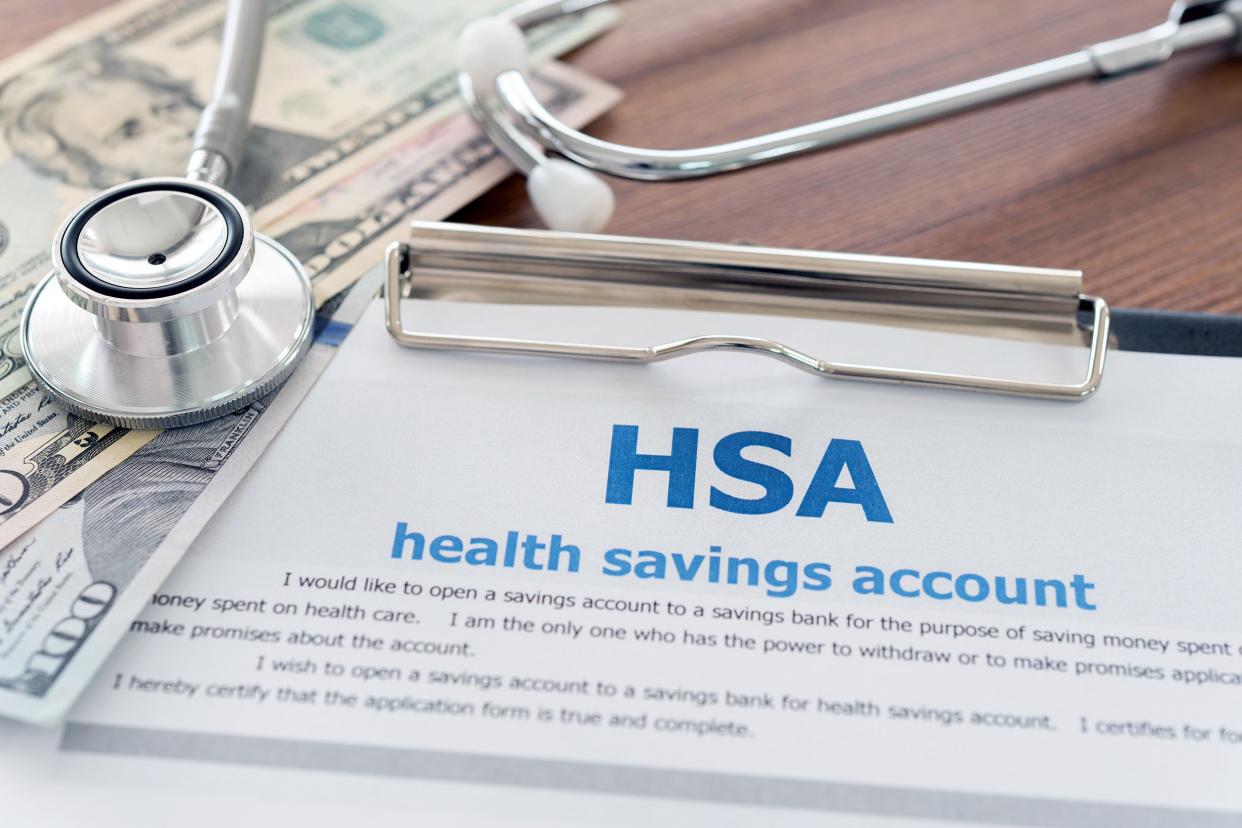
Consider getting a Health Savings Account-eligible plan or use your employer's Flexible Savings Account plan to cover medical, dental, and optical care expenses. HSA plans charge lower monthly premiums because they have high deductibles. FSA plans allocate a portion of your pre-tax salary to an account that must be used within a calendar year. These accounts save money by lowering the overall income that is taxed by federal and state agencies. FSAs and HSAs also save you money by covering costs for treatments and medications not otherwise included under your health plan with pre-tax dollars.
Related: 20 Valuable Tax Breaks for Seniors

If you were previously subject to the Medicare High Income surcharge, you may be eligible for a review of that surcharge if your income has dropped due to divorce, death of your spouse, or retirement. Find out more on the Social Security website.
Related: Age Pays: 118 Senior Discounts (Some Starting at Age 50!)

The cost of prescription medications has skyrocketed in the past several decades, to $1,025 per capita in 2017 from about $90 in 1960 (adjusted for inflation), according to the Peterson-KFF Health System Tracker.
One factor affecting consumer prescription drug costs is the increasing use of separate deductible requirements by insurance plans for prescription medications. These deductibles and tiered pricing plans mean that consumers shoulder much of the price burden.
As many as 25% of respondents surveyed by Kaiser Family Foundation indicated that they struggled to afford their medications, and about 30% reported not taking their medications on the recommended schedule or even choosing not to fill needed prescriptions because of the price. Here are some less risky strategies to lower the costs.
Related: The Cheapest Pharmacy: Walmart vs. Walgreens vs. CVS and More

When reviewing a prospective insurance plan's online formulary (list of covered prescription medications), reconfirm that your medications are covered just before the final signup deadline. Formulary changes can occur at any point before and during the coverage period. If your plan does not have an online formulary, request a written copy and review it before signing with the plan, or call the plan's pharmacy help desk.
If you are a Medicare beneficiary, use the Medicare Plan Finder tool before the end of each calendar year to itemize your current medications and see which plan provides the best coverage. While you can't predict future prescriptions, this will help you predict costs for ongoing medications.
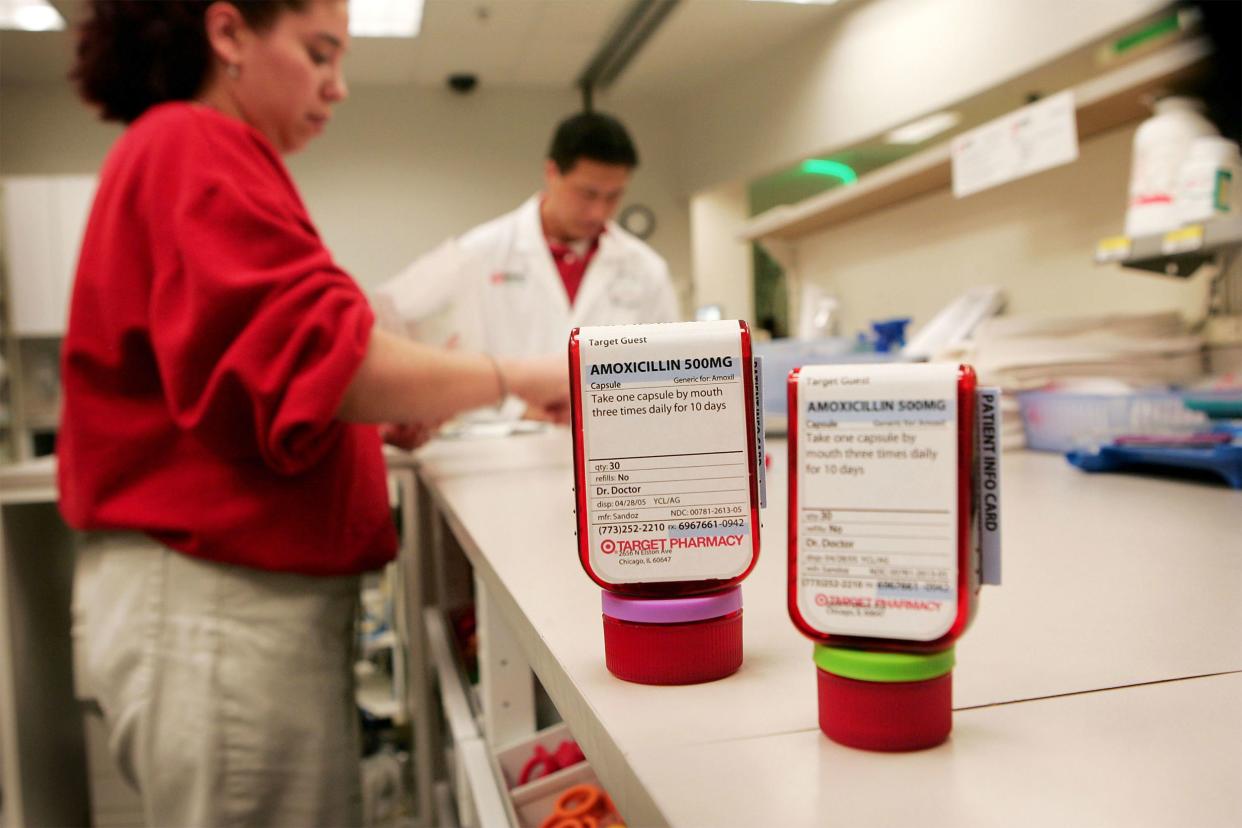
Sign up to obtain a prescription-benefit card from sites such as GoodRx, RxSaver, Singlecare, and FamilyWize. Their online tools allow users to compare prices on medications at local pharmacies. Optimally, compare your medication price on two or three sites, as discounts will differ across platforms.
Many insurance companies offer online tools to research the cost of medication and explore drugs that provide a therapeutic alternative at a lower cost. A therapeutic alternative is a drug, often a generic or an older version of the name-brand medication, that provides a similar benefit at less cost.
Related: 18 Prescription Drugs That Cost More Than a Car

Use the prescription refill process to your advantage. According to Barry Pascal, a pharmacist in Southern California, you can order a refill after you have used 75% of the supply for that prescription period to build up a larger supply over the course of time. That means you can reorder drugs after 68 days for a 90-day supply, 45 days for a 60-day supply, or 23 days for a 30-day supply. Many pharmacies offer this "auto-refill" benefit to their customers.
This saves money by allowing you to accumulate needed medications for chronic conditions at a favorable price. Refilling early also minimizes the risk that your medications will be delayed due to shortages arising from the recent public health crisis.

Ask your physician for free samples of medications provided by pharmacy sales representatives or vouchers that allow you to fill the prescription at a discounted price. If you are receiving a new prescription, samples allow you to assess whether the medication and the dosage level is the right fit for you before you invest in more medication than you may need.
Ensure that any recommended medication is on your formulary list. Most doctors can access the online list directly, or you can bring your formulary list to every visit.
Ask your doctor if there is a Tier 1 alternative to any new or expensive name-brand medication. Unless specified, pharmacists are not obligated to provide generic medications that may exist.
When your physician recommends a new medication, ask if it will allow you to eliminate an existing prescription.
If your physician strongly recommends a medication that is not in your plan's formulary, have the physician complete a medication-exception request to the plan's policy.

Ask your pharmacy or drugstore for a discount.
Find out if you can obtain a better price on a higher dosage of the prescribed drug and then split the medication using an inexpensive pill-splitter. Verify with your pharmacist that splitting pills will be safe before proceeding, as some capsules and medications should never be divided.
Ask if you would pay less with cash or a prescription discount card than with your insurance. You are not obligated to use your insurance prescription benefit. While an out-of-pocket payment would not apply against your pharmacy deductible or annual out-of-pocket maximum, you could still save money.
Find out the manufacturer's expiration date on your prescription. While pharmacists are obligated in many states to mark an expiration date of a year from dispensing, some medications may have a later expiration date.
Ask your pharmacist if there is free delivery of your medications to reduce transportation costs. If not, ask if the pharmacist can coordinate your refill schedule so that all your medications can be picked up with one trip.

Patient Assistance Programs enable patients with low to moderate incomes to obtain free or low-cost medications. These include both generic and name brand medicines, as well as insulin for diabetics. Some PAPs are associated with local, county or state government agencies, while others are established by manufacturers, non-profit organizations, and charitable foundations. A list of these resources can be found at NeedyMeds, Need Help Paying Bills, the American Academy of Family Physicians' Partnership for Prescription Assistance, and Rx Outreach.
Related: 10 Ways to Reduce the Risk of Diabetes

Most insurance plans have preferred local pharmacies, and many insurance plans have relationships with mail-order pharmacies. The plans often incentivize subscribers to utilize these benefits by allowing for 90-day refills as opposed to monthly supplies. Ordering the 90-day supply saves money on monthly deductibles.
If you have a high-deductible plan or no insurance benefit, you can also consider obtaining medications from reputable international outlets. For price comparisons on specific medications across licensed mail-order pharmacies, go to PharmacyChecker. If you are in doubt about ordering from an online company, you can use LegitScript to make sure the pharmacy is reputable. LegitScript tracks over 5 million pharmacies and products, including dispensaries of psychoactive products.
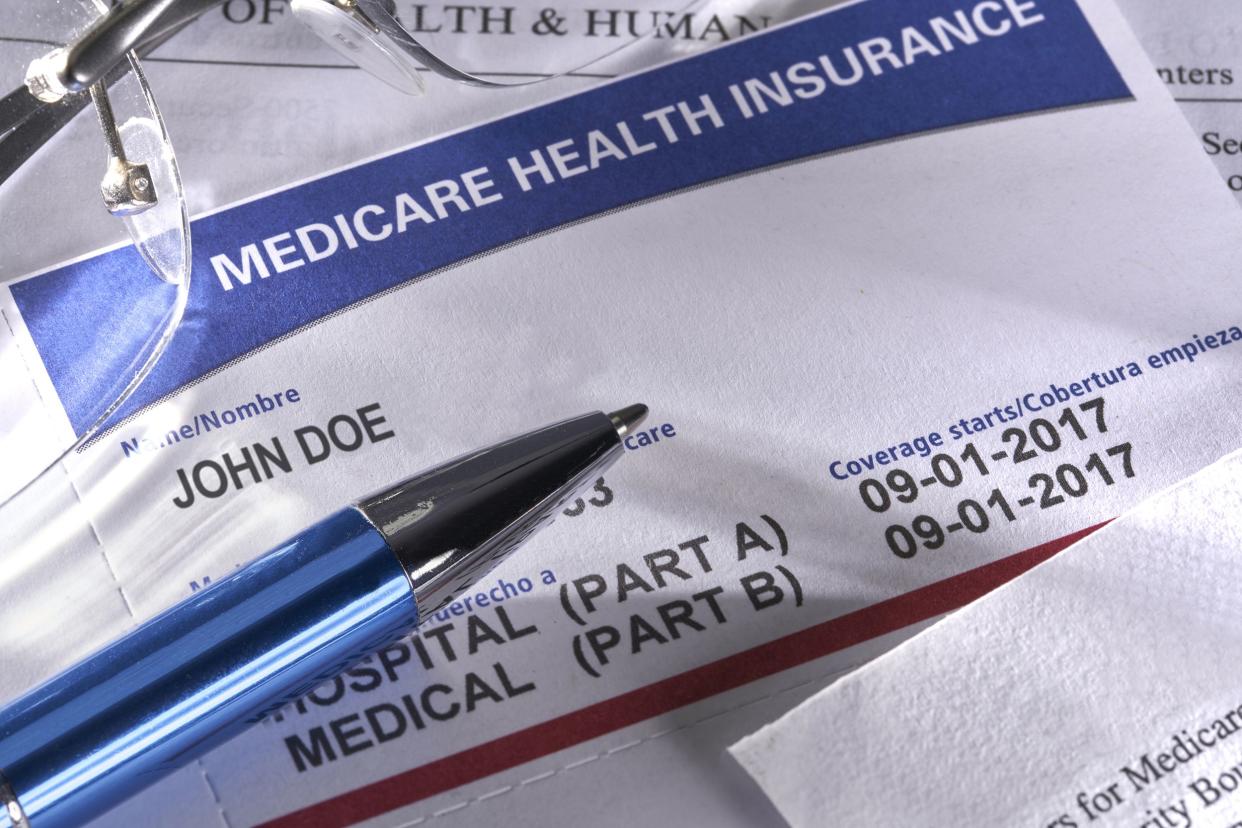
Medicare's "Extra Help" program qualifies people who meet its income requirements to pay minimal sums for both generic and name brand drugs. You can explore this program by calling 1-800-Medicare or going to the Medicare.gov website.
Related: How to Protect Yourself From 10 Top Causes Of Death For Women

For those with chronic conditions, help with prescription costs can also be obtained through organizations such as the Dispensary of Hope. National associations affiliated with medical conditions such as diabetes, multiple sclerosis, cancer, and fibromyalgia can also provide information about financial assistance with the treatment costs, as well as expenses such as transportation, wigs, groceries, and prostheses.
Related: 25 Resources for Breast Cancer Support

If you have a complex medical condition, research your plan's specialty pharmacy to help you plan for your care in a cost-sensitive process. This may allow for medications involving injection or infusion to be performed in facilities other than a hospital or clinic.
Related: 10 Lessons I Learned When My Thyroid Stopped Working

Previously, HSAs generally couldn't be used to pay for over-the-counter medications, but the government's recent economic stimulus package has eased the rules governing HSAs and FSAs, broadening the kinds of products those tax-deferred funds can be used for. Pain relievers, antihistamines, and feminine-hygiene products and other items are now eligible.
You can use your FSA funds to purchase items such as knee and back braces, breast pumps, first aid supplies, blood pressure monitors, many over-the-counter medications, and other items from the drugstore.
Related: 25 Emergency Items You Should Put in a First Aid Kit

Hospital expenses account for roughly half of the more than $3 trillion spent on health care annually in the United States, according to Elisabeth Rosenthal, editor-in-chief of Kaiser Health News and the author of the book "An American Sickness." She offers a number of pointers to avoid overpaying for hospital care, including actions that take place before, during, and after your stay. Even if you are admitted on an emergency basis, there are ways to ensure that you do not incur unnecessary expenses.
Related: Best Perks for Seniors in All 50 States
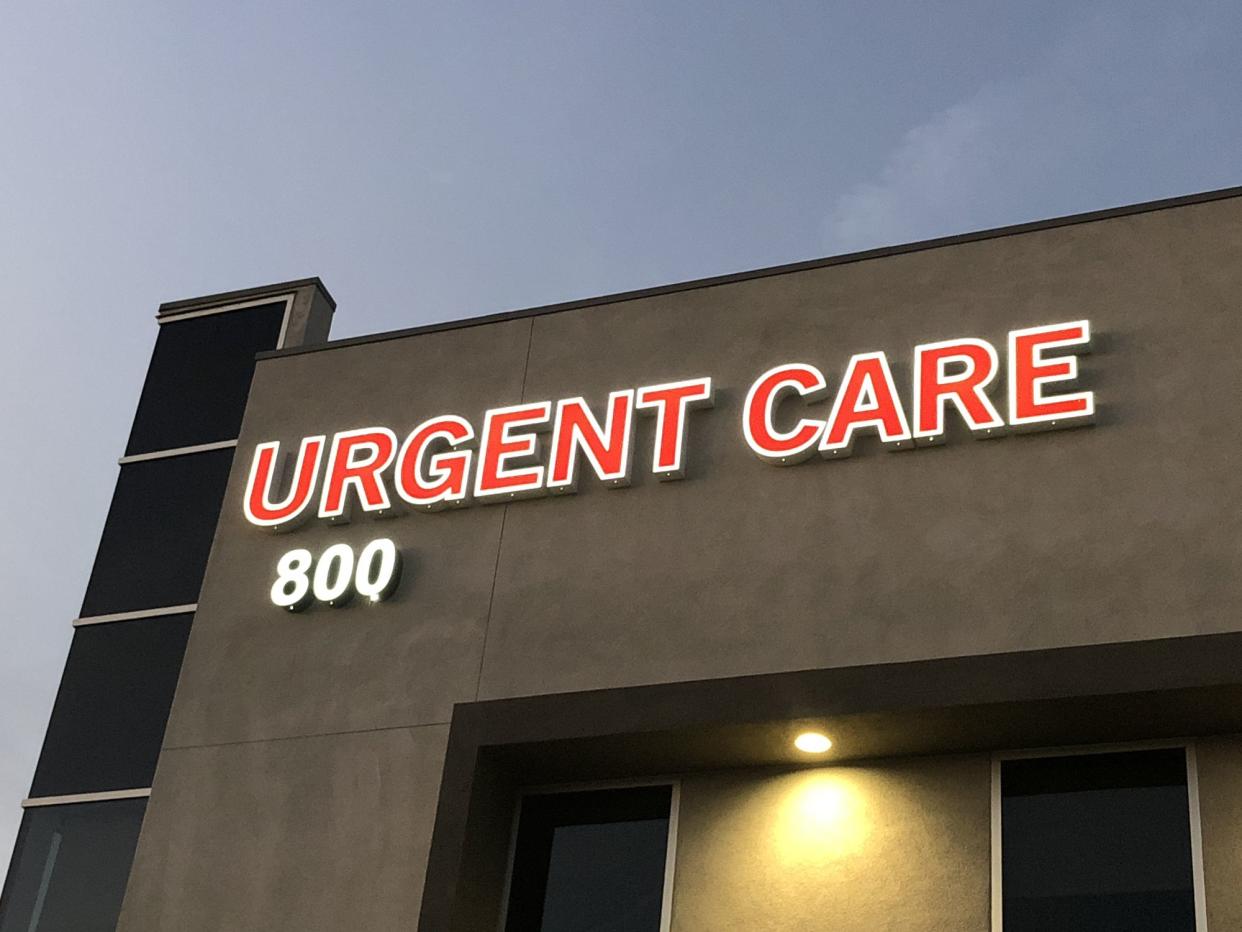
Consider the appropriate level of care before automatically driving to the emergency room. The ER is likely to be the most expensive facility and may have longer waits than other alternatives. While life-threatening emergencies, including cardiac symptoms, strokes, poisonings, and severe allergic reactions, require emergency care, many other conditions can be treated at urgent care centers or clinics associated with drugstores, such as CVS and Walgreens. Call the advice nurse or check your insurance plans' online options for recommendations in your area.
Related: Lifesaving Skills Worth Learning for Emergencies

If you have more than one hospital option in your network, research the reputation of each hospital through sources such as the non-profit Leapfrog, Medicare's Hospital Compare Program, and the U.S. News and World Report Best Hospital rankings. Also review Medicare's Provider Utilization and Payment Data report on inpatient care. Avoid hospitals that have repeated health and safety violations, as medical complications following hospitalizations jeopardize both your health and your wallet.
Compare prices charged at in-network hospitals through the Hospital Pricing Calculator from The New York Times, Healthcare Bluebook, or Fair Health.

Before your procedure, meet with the finance department staff to discuss your upcoming treatment and review any anticipated expenses. Many states require hospitals to provide a written estimate for anticipated services. Ask to pay the Medicare rate, even if you are not Medicare eligible. You can get that information by going to a price calculator like ClearHealthCosts. Many hospitals will reduce expenses by significant amounts, especially if you can show them that you have done your homework.

Do not agree to use credit cards or your retirement funds to pay for any procedures. You could end up paying exorbitant interest fees or tax penalties using these methods. Insist on setting up a payment plan that is affordable. For more information about payment issues, check the Project Access website.
Related: 32 Credit Card Mistakes You're Probably Making

If you have a very high deductible or you are paying for a procedure yourself, consider researching all-inclusive packages. Pratter provides information on cash prices at local facilities while MediBid matches patients seeking care with doctors and facilities who are willing to provide a discounted rate.

If you want the lowest rate for needed surgery, consider obtaining your treatment in another country. Surgeries in some countries can cost a fraction of the U.S.-based amount. Research this option through the Medical Tourism Association website to weigh the risks and benefits.
Related: 15 Countries Where Americans Can Save Big on Medical Care

Before and during admission, ensure that all tests, imaging and surgical procedures are pre-approved by your plan, and that members of your treatment team are in-network with your insurance. In her book, Rosenthal suggests writing the words "as long as the providers are in my insurance network" on any forms that ask you to accept financial responsibility. Take a photo with your cellphone or obtain a copy of all of your admission documents.

If your status is listed as "under observation" when you are in the hospital, you are considered outpatient, and you will not have insurance coverage for inpatient care. This can become very expensive. Unless the physician is willing to admit you on an inpatient basis, consider if you need to be there at all.
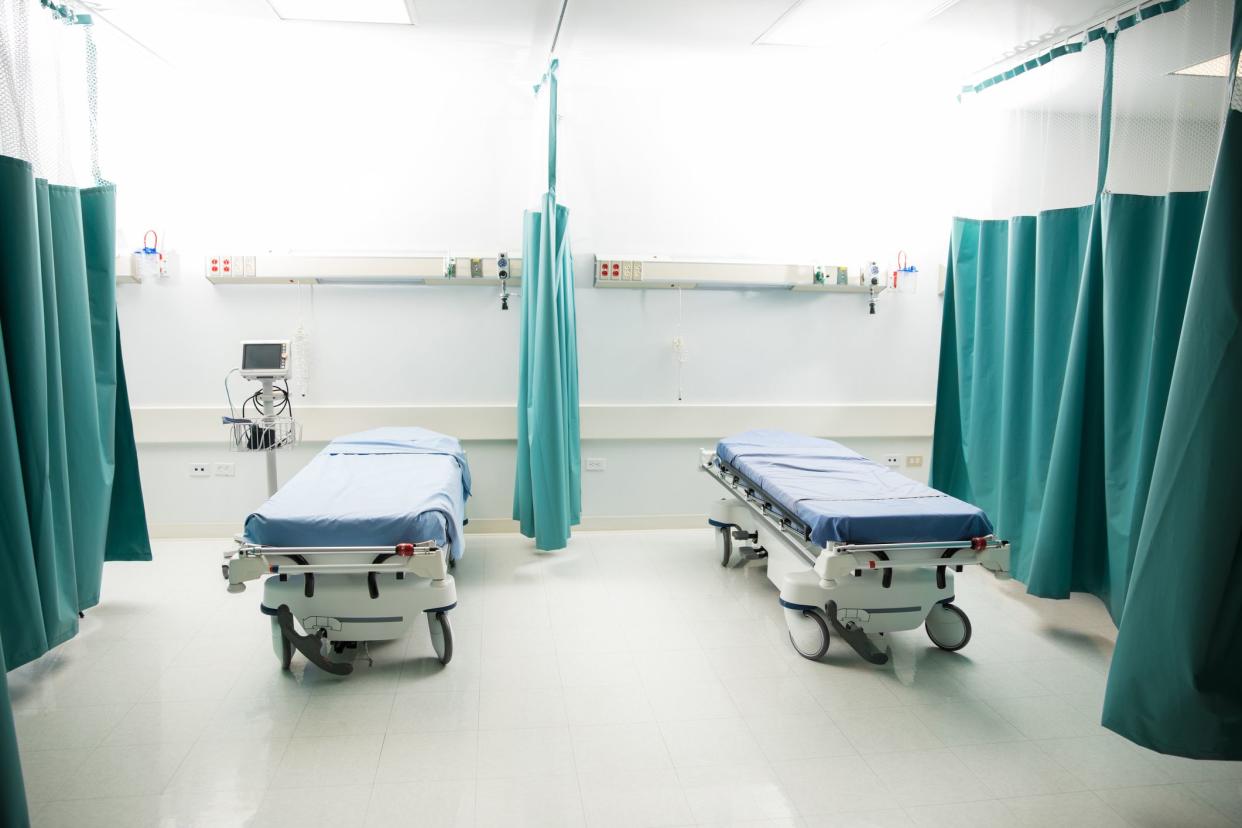
If you receive a private room even though your insurance does not provide for that option, document that you did not request it and note your willingness to share a room. Otherwise, your insurance may indicate that you are responsible for a "private pay supplement" that can result in unexpected costs.

During your hospitalization, try to keep a written record of every practitioner who attended to you. If you are too compromised to do so, have a friend or family serve as your advocate. Refuse any unnecessary visits from specialists and providers who are not essential to your care. These "drive-by" visits inflate your bill with unneeded care.

Even when items are covered by your insurance, Rosenthal suggests avoiding accepting equipment such as slings and wheelchairs that can be purchased elsewhere at much less cost. These items inflate your bill.
Related: 29 Products and Services to Make Seniors' Lives Easier

If you receive a bill for unexpected hospitalization costs, ask for an itemized bill and review it against the notes you took during your stay. Hospital bills often contain errors that can cost you money. Immediately contest in writing any charges for out-of-network care. If you were taken to the hospital for an emergency, get your insurance customer service department involved and offer to pay only the in-network rate.
You can also hire a claims specialist to review your bill and contest duplicate or improper charges. While they charge an hourly fee, their services may save you money on larger bills. You can find one through contacting the Alliance of Claims Assistance Professionals. Medicare beneficiaries can get help in reviewing bills from the State Health Insurance Assistance Programs, which offer free insurance counseling services.

If you are protesting an unreasonable hospital bill, use price comparison tools to establish typical charges for procedures. Check sites such as Healthcare Bluebook and ClearHealthCosts. In some participating states, you can also check the All Payer Claims Database to develop a cost range for a given treatment.
Related: America's Healthiest States for Seniors, Ranked

Rosenthal suggests obtaining the hospital's IRS Form 990, which provides information on the facility's operating profit and policies related to uninsured care. Many hospitals receive tax benefits from governmental agencies based on provision of community services and charitable care. This information can be downloaded from Guidestar and ProPublica. Consider writing to local officials, state insurance commissioners, and consumer news reporters to bring attention to your situation. Describe your attempts to make a reasonable settlement of costs and the hospital's response.
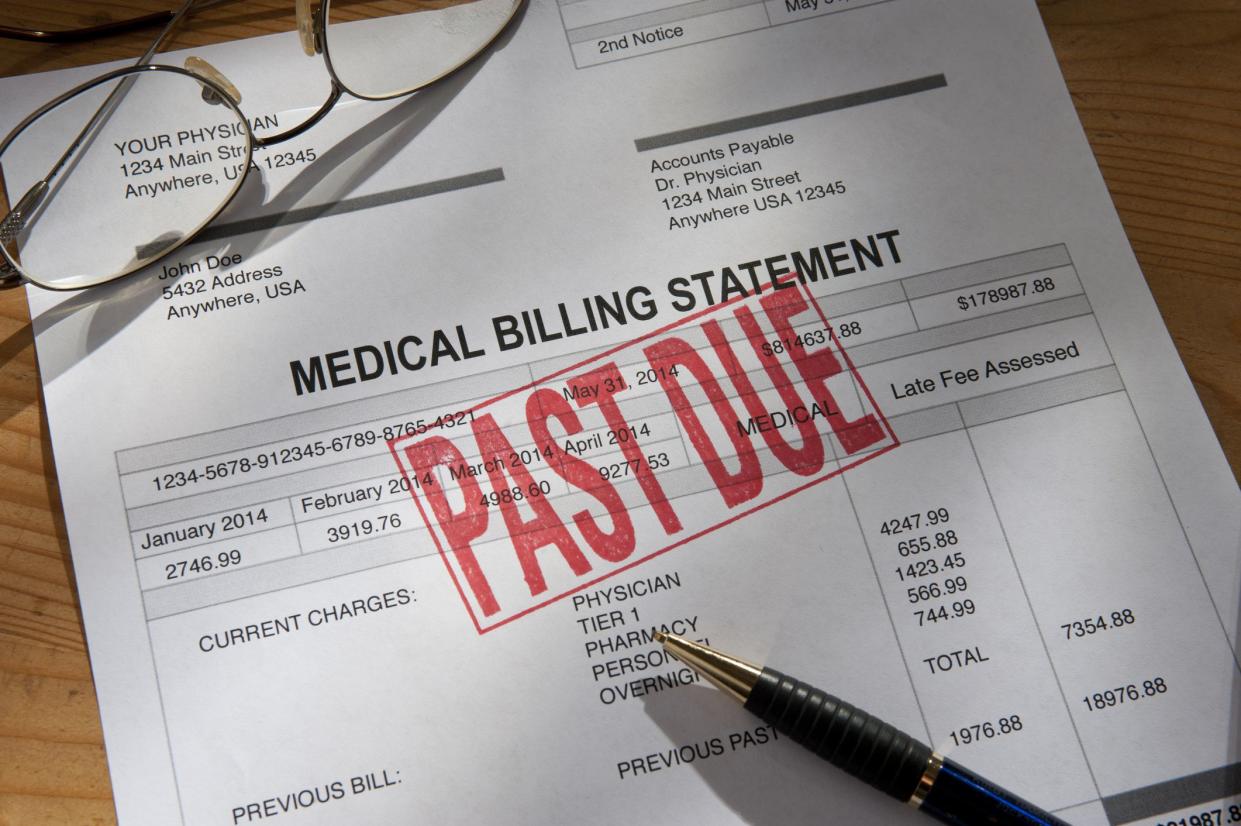
Find out at what point the hospital turns bills over for collection. Once bills are outsourced to collectors, hospitals eventually recover only a small portion of the total, while you may now be faced with a sizable headache and a damaged credit rating. Offer one final time to resolve the outstanding balance at a discounted price.

Nearly 85% of American adults have contact with a physician in a given year, and medical visits account for about a third of average annual health care costs. Make the most of your health care dollar by taking the time to choose your team of physicians wisely and using your limited time with the physician effectively. Here are some specific strategies to limit unnecessary spending.
Related: 16 Health Problems You're Not Getting Help For — But Should

Use providers in your network and insist that any referrals for specialists, imaging, laboratory tests, or surgical facilities you are given be in network. The plan has established a "negotiated rate," often referred to as the "usual and customary" charge, for that procedure and ZIP code. Physicians who are in-network agree to accept this rate, and they are prohibited from billing you for services that exceed their contracted rates. Review your insurance plan's Explanation of Benefits Form to ensure that you were charged only the negotiated rate and are responsible only for any deductible and copayment.

If you are choosing a new primary-care physician, use your insurance directory of network providers, identify a list of four or five in your area, and then read several reviews on different health care rating sites like Healthgrades, Vitals, and CareDash. Pay attention to ratings that address their bedside manner, responsiveness to patient needs between meetings, billing, and office procedures. Be suspicious of ratings that seem extreme or exaggerated. Choosing a physician is an investment in your health care.
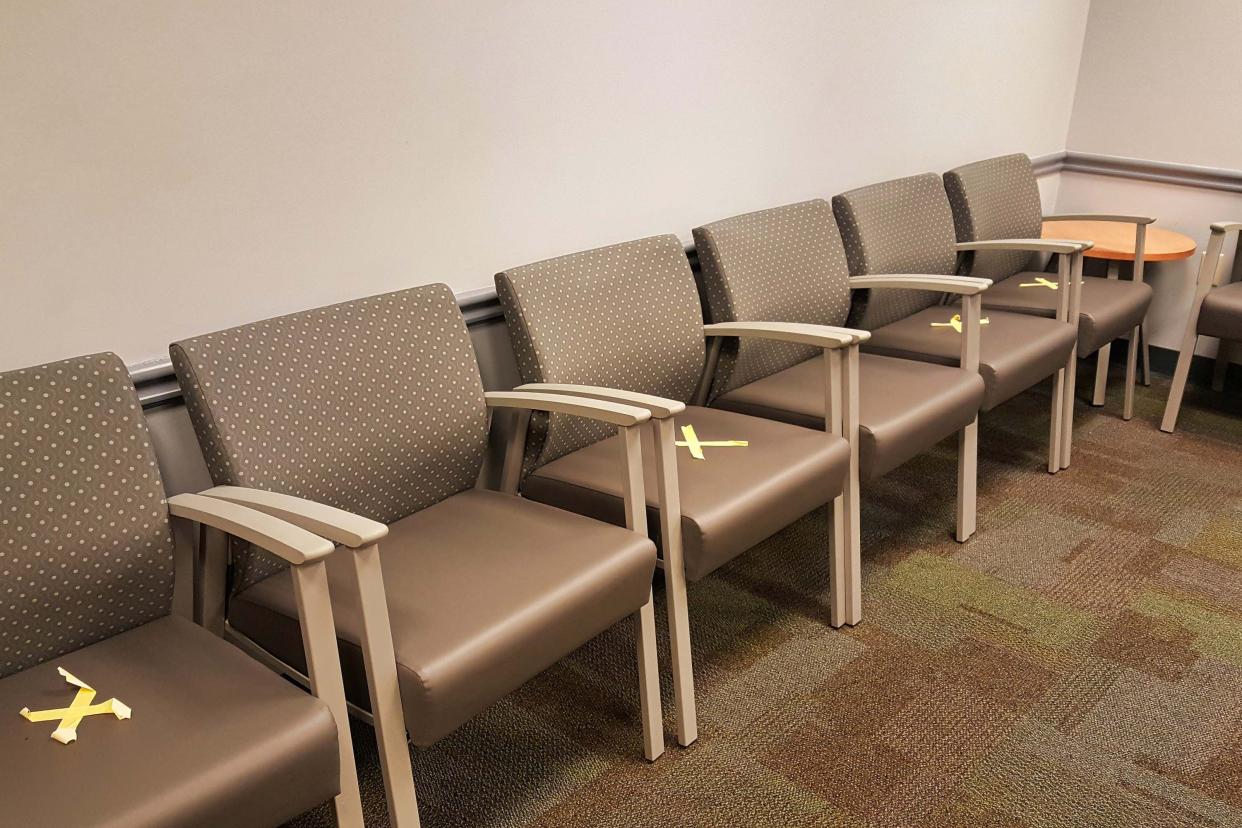
Physicians often practice in multiple locations, so contact the staff to find out if there are differences in costs for a medical visit at one location over another. Practice locations that are part of a hospital or surgical center network may charge a facility fee that can cost several hundred dollars.
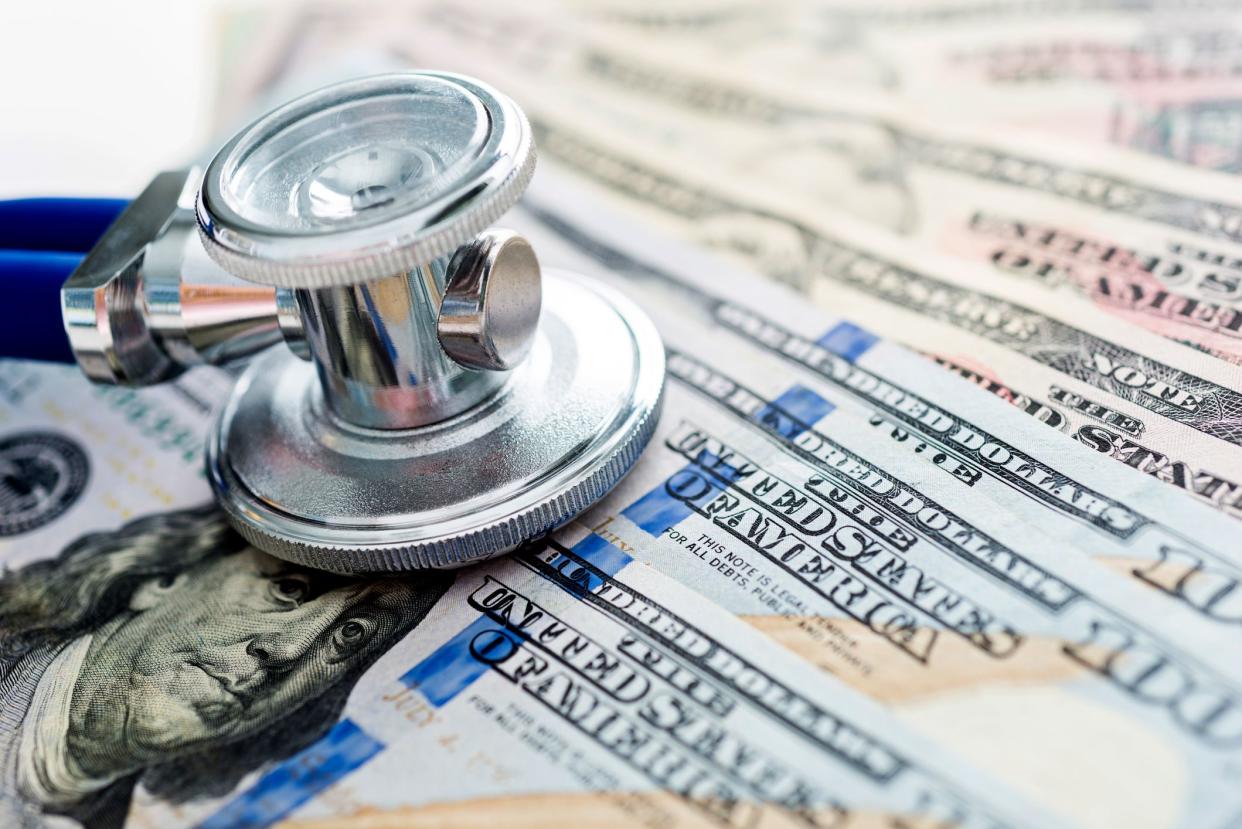
If you have a high-deductible plan, ask the practice manager if there is a cash discount. "Self-pay" rates are often less than insurance rates, because the physician receives immediate payment. If you have to see an out-of-network provider, a self-pay discount can reduce the pain.
Related: 11 Essential Rules for Negotiating a Discount

Bring a written summary of your medical history, including hospitalizations, surgeries, names and contact numbers for past providers, and family medical history to any first appointment with a physician. Bring a written list of recent symptoms and current medications, including dosage, to every appointment. Many physician appointments are booked for 15 minutes. You want your physician to be able to focus on you rather than using the time to summarize your history and medication use.
Related: 10 Lies You Need to Stop Telling Your Doctor

If your physician recommends any lab work, ask why these specific tests are being requested and if the physician will use your plan's in-network laboratory. If the physician owns the laboratory, ask if you are paying the same rate as you would be for the plan's preferred facility.

If you are referred for imaging or an X-ray, ask what it is for and what it is expected to cost. You may not need that MRI for your occasional knee pain. The overuse of medical tests and procedures accounts for about 25% of our health care spending in the United States, or roughly $765 billion dollars. Consult websites such as Choosing Wisely to see if your expensive screening test is really needed.

If you are referred for a surgical procedure, inquire if the procedure can be performed at an outpatient surgical center rather than a hospital. Hospitals are likely to charge more. Weigh the risks, benefits, and costs of inpatient vs. outpatient procedures for your individual situation. Also check Cochrane, a website that reviews evidence-based interventions for medical conditions.
Related: 15 Weird Ways Your Body Is Telling You to Go to the Doctor

Request copies of any laboratory results and summaries of your office visits. These can save you money by avoiding having to perform duplicative tests for another physician.

There are a variety of non-profit groups and governmental agencies that conduct local health screenings and provide free or low-cost medical, vision and dental care. Find listings of these agencies through the Need Help Paying Bills site or your local community directory.

Diagnostic tests and basic laboratory tests can range from a few dollars to thousands of dollars for advanced genomic analyses. For any test ordered, it is important that you understand what it is for and how the results will affect your treatment.

For basic laboratory tests, obtain a referral form that allows you to use the network facility preferred under your plan. In general, tests performed at a hospital are going to be more expensive and cost you more in copayments. Save the specialized facilities for tests that require expert technical or diagnostic capability.

If you are referred for imaging, ask for the five-digit CPT code and explore local options. Imaging centers often have unused capacity for patients and expensive overhead. Compare the rate that you would pay by using your insurance with the cash rate at various facilities. Use prices calculators to compare prices in your area and then call to obtain an actual estimate of charges. While you may miss out on the insurance benefit, you may ultimately save more.

Request copies of any results and keep them as part of your personal health record. For imaging, ask to receive actual copies on a disc rather than the report summarizing the results.

The best method of saving money on health care is to avoid becoming sick! Maintaining healthy habits limits your lifetime health risks. This is done by maintaining a healthy weight, eating a varied diet of unprocessed foods, exercising regularly, avoiding smoking, and limiting alcohol and caffeine. Treat conditions like hypertension and high cholesterol early and practice good dental hygiene. Maintain a work-life balance and find ways to meet your social and emotional needs. These habits will not only help increase the quantity of your years, they will also help increase the quality of them.
Carol Povenmire, Ph.D. is a licensed psychologist in Pasadena and Manhattan Beach, California.
